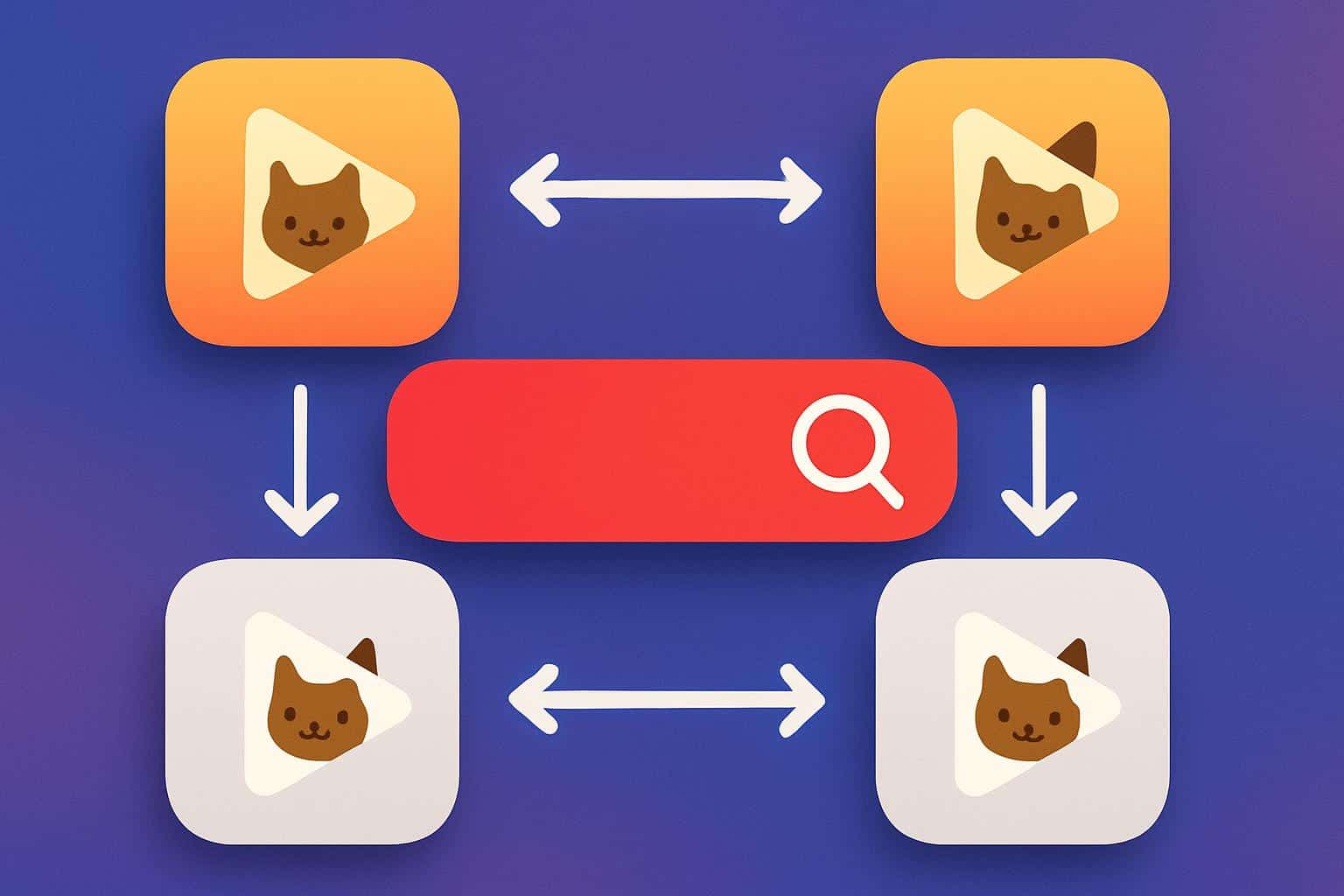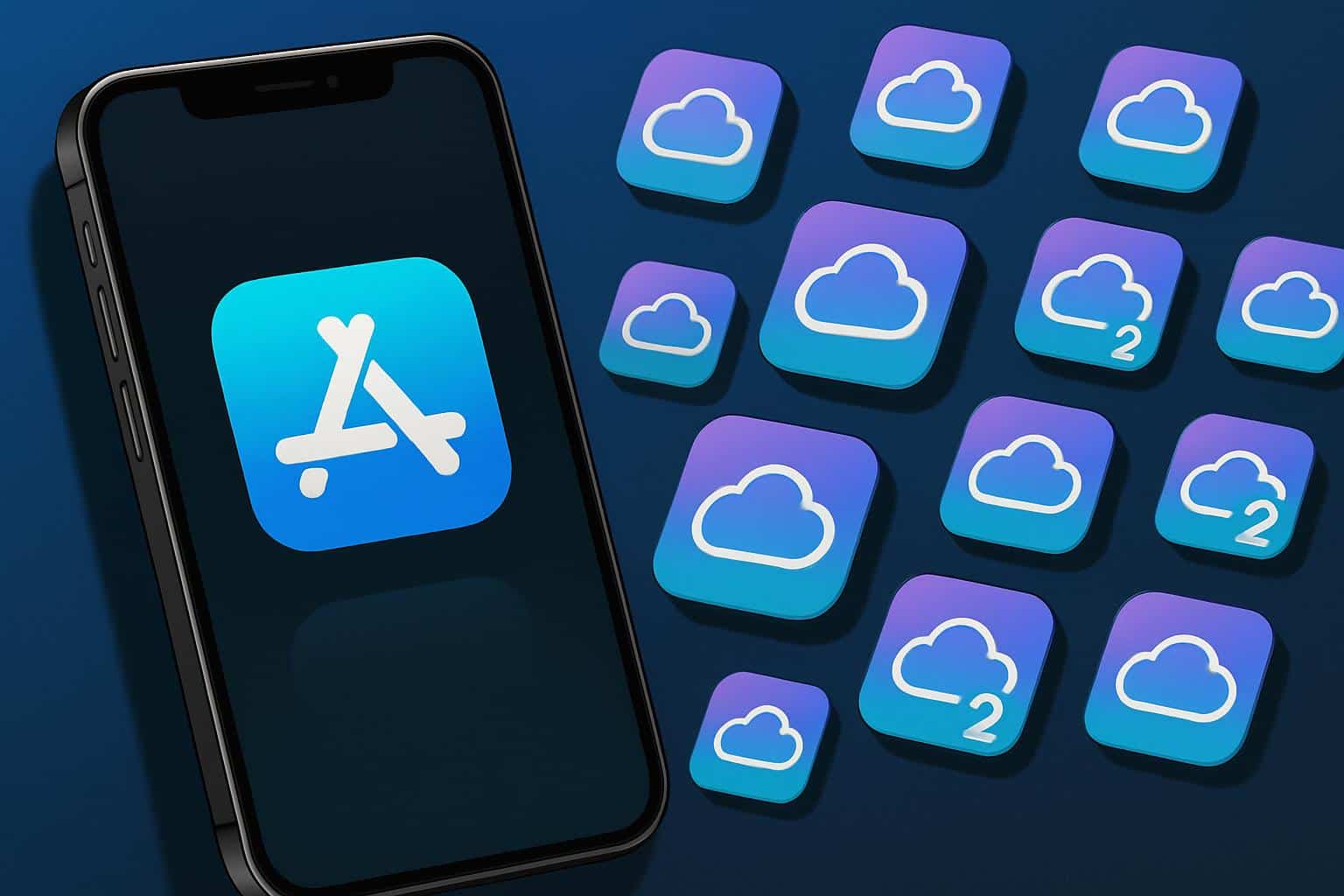OpenAI’s splashy debut of its invite-only Sora mobile app left a power vacuum that opportunists scrambled to fill. Within days, the App Store was flooded with copycats marketing themselves as “Sora” or “Sora 2,” riding high on the buzz surrounding the company’s new video-generating model. Apple pulled down several of the fakes, but many doppelgängers remain active, serving as reminders of well-worn vulnerabilities in app review and search enforcement.
The mimics went further than copying a name. Others recycled old shells — apps that had been live for months under earlier titles — refreshed their icons, keywords, and descriptions to catch Sora searches. Others relied on suggestive branding such as “Sora 2” to suggest official lineage. That they made it to public listings in the first place underscores how challenging it is to police trademark abuse at scale, even with Apple’s highly visible pre-publication review.

How the App Store Review Let Some Fakes Slip Through
Apple vets every submission, but millions of updates come through each year, according to the company’s App Store Transparency reporting. Static checks will not necessarily catch renaming and re-keywording of an already existing app, especially if the binary doesn’t obviously mutate. Reviewers also have a moving target: a quick rebrand after an explosive debut, server-side feature toggles, and screenshots resting on the line.
On paper, Apple’s rules are straightforward. Rule 5.2 bans misuse of third-party trademarks, while 2.3 demands truthful metadata, and 4.3 roasts spam-like doppelgängers. In practice, enforcement tends to occur after the fact via complaints, automated sweeps, or analyst flags — providing bad actors a window in which to game search and subscriptions sufficiently to profit.
Copycat Sora installs and revenue, by the numbers
According to Appfigures, copycat Soras on iOS (and some of the copies on Google Play) clocked in at roughly 300,000 installs as of this date, with over 80,000 downloads coming after the official Sora app debuted. For comparison, OpenAI’s legit mobile app has been downloaded 1 million times, indicative of a deep interest (and something to profit from copying).
The standout fake, “Sora 2 – AI Video Generator,” was installed more than 50,000 times in the post-launch frenzy, according to data from Appfigures. In total, the impostor cohort generated more than $160,000 in revenue over their short lives, mostly through aggressive trials and weekly subscriptions. That’s real money for low-effort reskins.
What copycat Sora apps still remain live today
Search haul: Just because something is uploaded doesn’t mean lads won’t either repost it or mirror it to keep others from controlling his narrative. Despite removals, quite a few Sora-branded finds are searchable. “PetReels — Sora for Pets” has just a few hundred installs, and “Viral AI Photo Maker: Vi-sora” hasn’t taken off. Another, “Sora 2 – Video Generator AI,” has surpassed 6,000 downloads and is still on the rise. Small by App Store standards, these remainders of that time indicate ongoing cleanup rather than a job well done.
Apple had no comments when asked how Sora slipped through and if the other titles using the mark were going to be purged. Appfigures verified that a lot of these were yanked post-spike, which implies Apple is clearing out the backlogs even if it’s not yet catching all edge cases.
Why It’s Important for Users and Developers
For consumers, the risk is plain: Mixing up a lookalike for the real thing can result in surprise subscription fees, poor video quality, or data practices that you never signed up for. Much like the apps’ use of popular social media influencers, regulators such as the U.S. Federal Trade Commission have repeatedly cautioned about dark patterns in mobile subscriptions and services, which is precisely the tactics being employed by these apps.

For honest developers, impersonation messes with search; when you assign another app to come out of the same bathtub, most people will not play in your tub again or trust your rubber duckies and boats on wheels! It’s a headache for rights holders, both in terms of trademarks and brand safety that requires ongoing enforcement. OpenAI can avail itself of Apple’s process for contesting a trademark claim, but that still depends on quick detection and organized response.
Apple’s next move to curb copycats and protect users
Apple would be able to curb rename abuse by adding more verification when an app is taking over a high-risk keyword, and put the app into a search visibility purgatory until a secondary review clears it. A watchlist for protected marks and model names — combined with documentation requirements for authorized use — would close the remaining loopholes.
Automated measures for similarity checks would seem to help as well — flagging icons, titles, and screenshots that look so similar to a known app; watching metadata pivot suddenly after big AI launches; making those changes surface for faster human review.
The App Store Transparency Report would provide accountability by publishing metrics for takedowns for impersonation.
Outside pressure is rising, too. Under the EU’s Digital Services Act, platforms are supposed to swiftly remove deceptive listings. App stores may have specific work to do, but the overall direction of travel seems clear: less tolerance of impersonation and more bounds policing when a hot new AI brand catches fire.
How you can tell the real Sora app from copycats
Look at who the publisher is (OpenAI, Inc.), read the fine print, and beware any titles touting “Sora 2” or offering you access you can’t get anywhere else. Browse through installed histories, recent name changes, and ratings deviation. Report anything that seems suspect using Apple’s Report a Problem – speed is of the essence when discovery is encouraged via hype.
The surge of Sora clones is a reminder that as much as a marketplace may be tightly controlled, it can still be gamed in the short run. Cleaning it up — and closing the gaps that let it through in the first place — will be the real test of Apple’s app integrity promises as AI apps continue their apparent freewill sprint up the charts.

